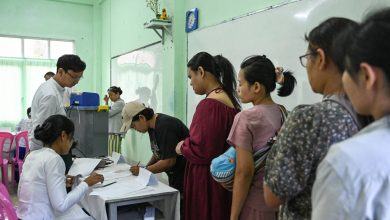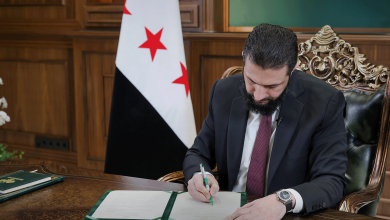Algeria’s National Cinema Sessions concluded today in Algiers with participants advocating for a comprehensive overhaul of the cinema sector. The main recommendations included establishing sustainable financing mechanisms, enhancing regulatory frameworks, advancing digitization efforts, improving infrastructure, and prioritizing training. These measures aim to transform Algeria’s cinema industry into a key cultural and economic driver.
Comprehensive Workshops Drive Strategic Recommendations
The sessions, held under the high patronage of President Abdelmadjid Tebboune, featured five specialized workshops addressing different aspects of the cinema industry:
- Cinema Economy and Financing
- Governance and Regulatory Framework
- Ethics, Professional Relationships, and Training
- Audience Development and Distribution
- Digitization, Technology, and Heritage Preservation
The discussions included input from filmmakers, producers, experts, investors, and other key stakeholders in the Algerian film industry.
Sustainable Financing for Algerian Cinema
In the “Economy and Cinema Financing” workshop, participants proposed strengthening public funding mechanisms by increasing the budget for the National Fund for the Development of Cinematographic Industry and Technologies (FNDTIC). Other suggestions included:
- Establishing regional and local funds to support domestic film production.
- Mandating television channels (public and private) to pre-purchase or co-produce Algerian films.
- Offering a ten-year tax exemption for companies investing in film projects.
- Reducing or eliminating taxes on importing technical equipment for filmmaking and post-production.
- Building state-of-the-art production and post-production studios.
Preserving Cinematic Heritage Through Digitization
The “Digitization, Technology, and Heritage Preservation” workshop focused on preserving Algeria’s rich cinematic legacy. Key recommendations included:
- Cataloging and documenting the national film archive.
- Collaborating with national and international organizations to recover and digitize Algerian cinematic heritage.
- Enhancing resources—both human and technical—for institutions managing film archives.
- Establishing a specialized lab at the Algerian Cinematheque to oversee archival digitization.
Expanding Audience Access and Film Distribution
To attract larger audiences and promote Algerian cinema, the “Audience Development and Distribution” workshop made several suggestions:
- Removing cultural visa requirements for films screened in non-commercial cinema clubs affiliated with the ministry.
- Simplifying the legal process for establishing cinema clubs while providing logistical and financial support.
- Making cinemas and cultural centers available for use by film clubs.
- Continuing efforts to recover cinema venues and restore them for public use.
Governance and Institutional Framework
In the “Governance and Regulatory Framework” workshop, participants emphasized the need for institutional reforms, including:
- Establishing a centralized National Cinema Center under the Ministry of Culture and Arts to manage and oversee the cinema sector.
- Creating a Supreme Cinema Council as an advisory body to monitor and support the development of the film industry.
- Updating cinema industry regulations and bolstering international co-production agreements.
- Developing a legal roadmap to support the annual production of Algerian films with funding from the ministry.
Ethics, Professional Relationships, and Training
The final workshop stressed the importance of professionalization within the industry. Key recommendations included:
- Introducing a standardized professional contract to outline rights and obligations.
- Encouraging the formation of unions or representative organizations to negotiate collective agreements.
- Establishing a mediation body within the ministry to resolve disputes without resorting to court proceedings.
- Prioritizing Algerian talent for projects receiving public funding.
- Expanding training opportunities to develop industry skills.
Minister of Culture and Arts: A New Chapter for Algerian Cinema
Closing the sessions, Minister of Culture and Arts, Mr. Zohir Ballou, highlighted the significance of these discussions, stating that President Tebboune’s commitment marked a “new era” for Algerian cinema. He emphasized that this was the first time Algerian cinema received such attention and care, noting its potential role as a driver of national development.
According to the minister, the contributions from these sessions will form the foundation of an ambitious long-term strategy. “The recommendations presented will be considered carefully in our future plans,” he stated, adding that a roadmap will be developed in consultation with all stakeholders.
President Tebboune’s Vision for Cinema
President Abdelmadjid Tebboune inaugurated the sessions on Sunday, underscoring the government’s dedication to culture and audiovisual industries. In his opening remarks, he reaffirmed Algeria’s commitment to reviving its cinematic heritage and supporting filmmakers to create a modern, competitive industry.
The sessions reflect Algeria’s coordinated and inclusive vision for developing a sustainable cinema industry that meets contemporary challenges while honoring the country’s rich cultural heritage.
For more updates on Algeria’s cinema initiatives, visit: DZWATCH.DZ
Author: nor-eleslam
Keyphrase: Recommendations for modernizing Algeria’s cinema industry



